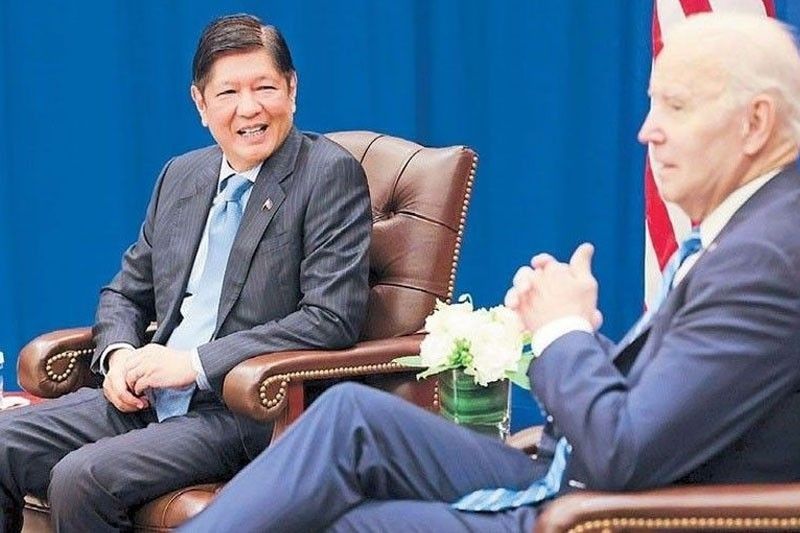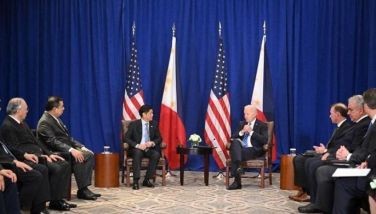Marcos’ trilateral call with Biden, Ishiba reset

MANILA, Philippines — The trilateral phone call between President Marcos, outgoing US President Joe Biden and Japanese Prime Minister Shigeru Ishiba was moved to this morning, the Presidential Communications Office said.
PCO Secretary Cesar Chavez yesterday said the US government requested the “adjustment” due to the ongoing efforts to contain the massive wildfires in Los Angeles that Biden wanted to personally oversee.
The virtual meeting was initially scheduled on Jan. 12.
“The Trilateral Leaders’ Phone Call with the US President, the Prime Minister of Japan and the President of the Philippines has been moved to 7 a.m. on Monday, Jan. 13 (Manila time),” Chavez said in a statement.
“It was conveyed that this (adjustment) was due to the ongoing wildfires in Los Angeles,” he said.
The agenda of the meeting was not disclosed by Malacañang, but Chavez said they would issue a statement after the phone call.
Biden canceled last week his trip to Italy – the final overseas trip of his presidency – to monitor the response to devastating fires raging California.
Earlier reports quoting Foreign Affairs spokesperson Teresita Daza said the three leaders are expected to discuss progress made on the Philippines-Japan-US trilateral cooperation since the historic trilateral summit in Washington in April last year.
The leaders are also expected to tackle economic matters as well as regional and global developments, Daza was also quoted as saying.
The three leaders’ meeting comes as China continues to draw concerns over its incursions in the West Philippine Sea, the latest being its deployment of what has been called a “monster ship” that was first seen off the coast of Capones Island in Zambales.
During the first ever US-Japan-Philippines trilateral summit in Washington on April 11 last year, the leaders tackled not just defense but also economic matters.
During the summit, the three countries assailed China for its “militarization” of reclaimed features, unlawful maritime claims, “dangerous” and “coercive” use of coast guard and maritime militia ships and efforts to bar other countries from exploiting their offshore resources.
They also asked China to comply with the 2016 ruling of the Permanent Court of Arbitration in The Hague that rejected Beijing’s massive claims over the South China Sea and upheld the Philippines’ sovereign rights over its exclusive economic zone.
China claims almost the entire South China Sea, a strategic sea lane where $5 trillion worth of shipment passes through annually.
In December last year, the Japan-US-Philippines Maritime Dialogue was held in Tokyo, where they exchanged views on the recent developments in the South China Sea and reaffirmed their opposition to any unilateral attempts to change the status quo by force.
In an interview in November last year, Marcos said he is optimistic the strong alliance between the Philippines and the US would continue under the administration of President-elect Donald Trump.
“I don’t think it will change,” Marcos said when asked about his prospect for the US-Philippines ties.
You know, they are our oldest treaty partner, that doesn’t change,” he said. “I will have to see if there is a major change, but I don’t think so. I don’t think so.
- Latest
- Trending
































